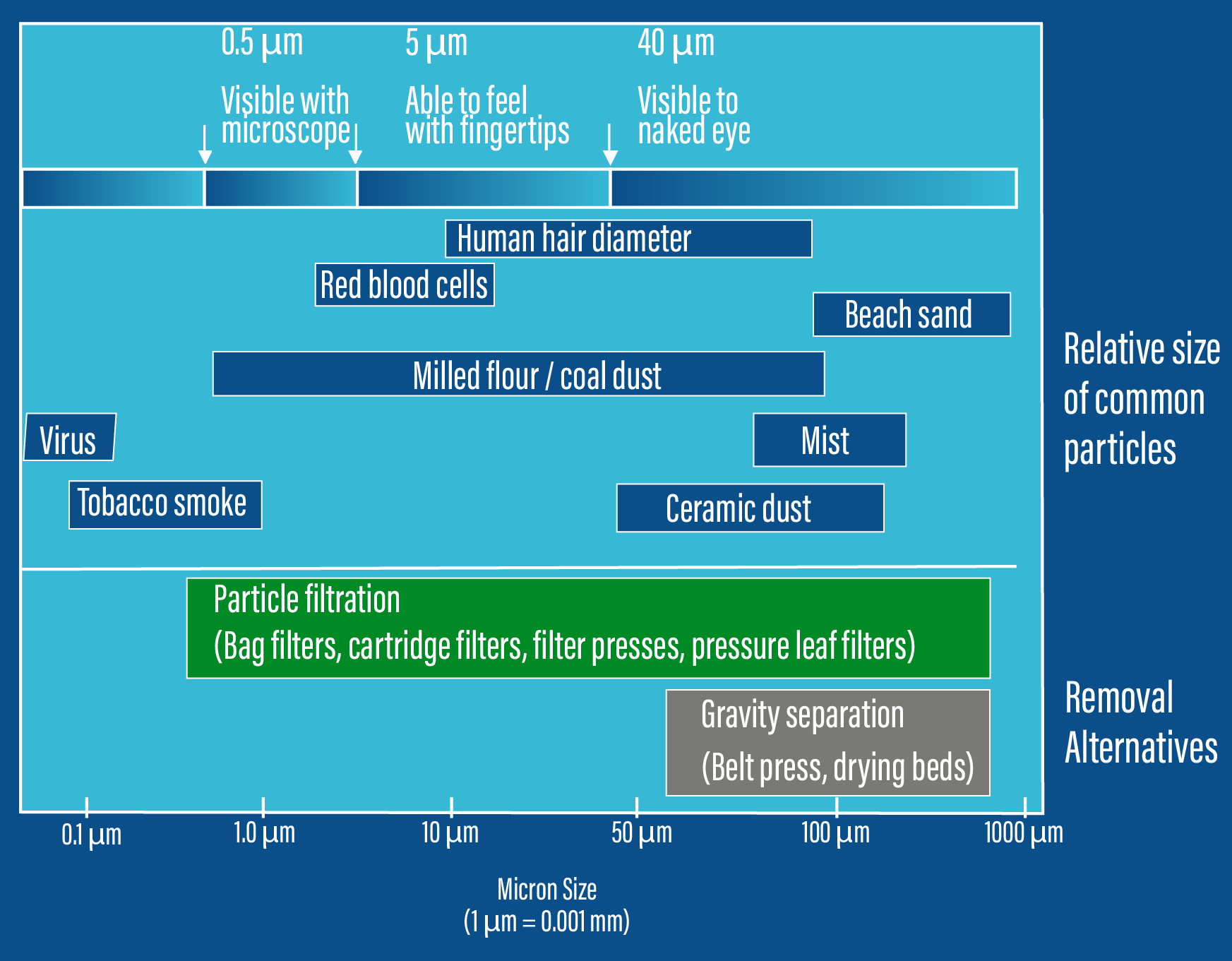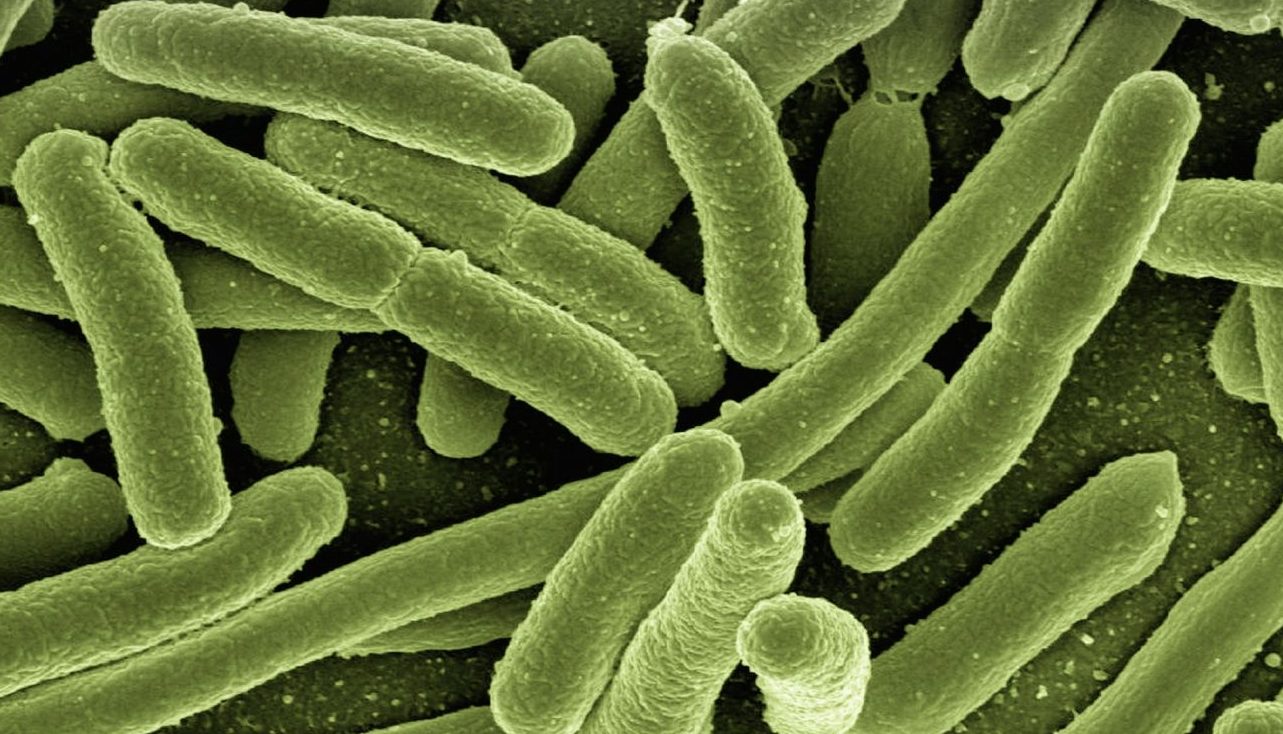We use cookies to make your experience better. To comply with the new e-Privacy directive, we need to ask for your consent to set the cookies. Learn more.
What Is a Micron Rating?
Whether you’re looking at a domestic water filter or a water filter for foodservice applications, you’ll likely notice that amongst the technical specifications, each filter has a micron rating. But what does that mean?
This article will cover everything you need to know about micron ratings so you can make an informed decision when buying a filter including the difference between micron ratings and which micron rating is best?
What Is a Micron?
A micron is a metric unit of measurement, also known as a micrometre, a micron is a millionth of a metre or a thousandth of a millimetre. It is denoted with the symbol: μm.
To help give an idea of just how small this is, a micron is about the size of a single grain of milled flour while red blood cells measure approximately 7-8 microns in diameter.
Anything roughly below 40 Microns in size is invisible to the naked human eye and would require a microscope to see it.
Micron ratings refer to the size of the holes or pores in the filter surface and thus the size of particle that a filter can remove from the water passing through it.
Micron Rating Chart
| Object | Micron Size |
|---|---|
| Viruses | .01 – .1 microns |
| Asbestos | .08 – .8 microns |
| Paint Pigment | 1 .5 microns |
| Bacteria | .5 – 50 microns |
| Yeast | 2 -15 microns |
| White Blood Cell | 25 – 30 microns |
| Pollen | 10 – 90 microns |
| Pin Point | 75 microns |
| Human Hair | 80 – 100 microns |
| Silica Sand | 100 – 200 microns |
Micron Rating Graph

Why Does My Water Filter Need a Micron Rating?
Micron ratings in water filters are used to offer guidelines into what size contaminant can be removed from the water. The size of the contaminant determines the size of the micron rating you require, for example if we want to filter out asbestos, we would need a water filter capable of removing contaminants that are between 0.8 Microns and roughly 8 Microns which is the size of asbestos.
A micron rating can be compared to mesh doors in hot countries that are used to allow the air to pass through, but prevents flies, bugs and other unwanted creatures from entering. The principle is the same but instead of mesh there are tiny pores allowing water to pass through but blocking tiny contaminants that can be present in water.
Bearing in mind that most micro-organisms and cysts when in the dormant stage of a micro-organism are above 1 micron in size, a water filter with a rating of 1 micron or lower will physically block them from passing through.

Bacteria can range from 0.2-1 Micron
Absolute and Nominal Micron Ratings
Absolute Micron Rating:
An absolute rating refers to the largest particle that will fit through the filter, so a 1-micron absolute filter should prevent anything larger than 1 micron passing through 95% of the time.
Nominal Micron Rating:
A nominal filter gives an indication rather than a guarantee of the size of particles that will pass through, with some of the pores or holes in the filter surface being larger than the rated size, they will let a percentage of particles through that match the micron rating.
Micron Ratings Available
Water filters come in a wide range of micron ratings from 10-micron sediment filters to 0.2-micron Everpure filters. The size of the micron you will require is entirely dependent on the water source and the size of what you want to remove.
Micron rated water filters vary in size, shape, the material used to make the filter and the media inside, so the below definitions offer a broad overview.
10 Micron Water Filter
10 Micron filters are usually used as sediment filters. They can be made of wound or pleated polypropylene or even in the form of bag filters. They are generally used for filtering out grit, sand and sediment.
View 10 Micron Filters
5 Micron Water Filter
Can also be made from ceramic – a 5 micron rated water filter helps to remove sediment, silt and anything that is 5 microns in size and bigger.
View 5 Micron Filters
1 Micron Water Filter
1 Micron Filters and smaller can aid with bacteria and Cyst reduction as the pores are small enough to block them filtering through along with other 1 Micron sized particles.
Doulton bolsters their bacteria-busting 1-micron ceramic water filters by incorporating a small amount of silver (which is lethal to bacteria) into the filter.
0.5 Micron Water Filter
0.5 Micron Water Filters means we are really getting small now, this size can prevent tiny 0.5-micron contaminants such as bacteria.
0.2 Micron Water Filter
Specifically designed to remove contaminants that are 0.2 Microns or larger – this provides a premium quality of water mainly used in fountain and combination applications
